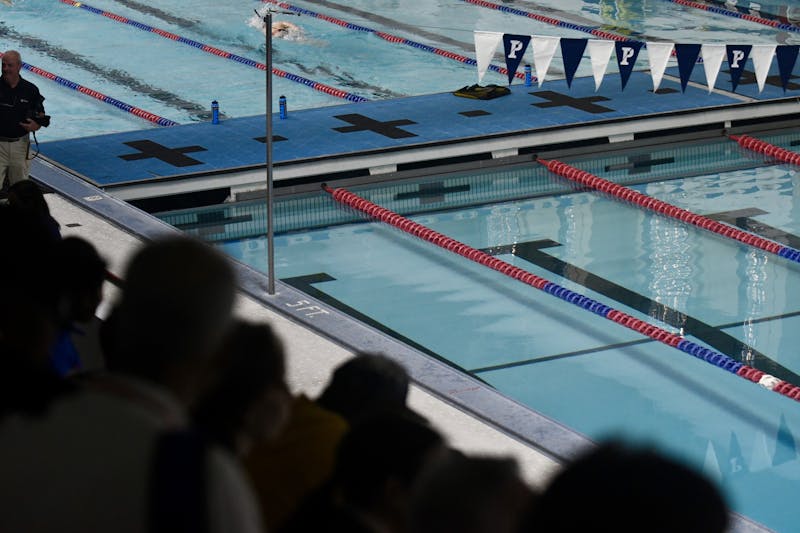Despite initial predictions that the University would take out a mortgage on the Sansom Common complex, Penn officials have now decided to deplete a University reserve fund by $66 million to finance about 83 percent of the project's first phase. Although officials remain confident that the retail and hotel complex currently under construction on the 3600 block of Walnut Street will "pay for itself," they opted to handle the bulk of the financing internally in an effort to maximize profit, according to Vice President for Finance Kathy Engebretson. The University Treasurer's Office will make an internal loan to Penn Business Services -- the department in charge of the complex -- to be paid back over 30 years at an interest rate of about 7 percent, Engebretson said. The remaining funding includes $8 million from the transaction between the University and Barnes & Noble College Bookstores Inc., which gave the company control of the University Book Store, $3 million in donations and $3 million in interest income. The move will save the University an estimated $1.3 million a year, since it will not have to pay the hefty 8 percent annual interest rate, an up-front fee of 1 percent and legal fees imposed by institutional investors, she added. Engebretson noted that while the University may borrow at an interest rate of about 5 percent for uses "specifically tied to its academic mission," such as residential renovations or academic buildings, a loan for the Sansom Common complex does not qualify for this rate under Internal Revenue Services regulations and constitutes taxable debt. The University, therefore, was faced with the choice of borrowing at a higher interest rate or keeping the loan in-house. The loan amount will be taken out of a University reserve fund -- pegged the temporary investment fund -- which is used to pay for facilities and deferred maintenance projects. The fund hovers around $200 million in any given year and is largely maintained by tuition revenue. While the University often relies on the reserve fund to make loans for campus-wide projects, the fund is rarely used for a loan of this magnitude, Engebretson said. But she added that the loan will not, in effect, cut the reserve fund by one-third or force students to foot the bill, because the money will be lent out over a period of years and the complex will generate revenue for the University to be funneled back into the fund. As part of the first phase of the project, the Barnes & Noble bookstore is scheduled to open July 15. Four retailers, including Xando coffee shop and Urban Outfitters, should also be in business by late August and the 250-room Inn at Penn should be completed by August 1999. Although officials said in September that the first stage of the project would cost about $73 million, the decision to move the Faculty Club from 36th and Walnut streets to the Inn at Penn has since bumped up the figure to $80 million, Engebretson said. The total cost for all three phases of the project, however, is still about $120 million, she added. When retail rent, as well as income from the new bookstore and the Inn stabilize in 2003, officials project that the building will produce about $7 million in annual income for the University. Approximately $4.8 million of that will be allocated toward debt and interest payments, leaving the University with an annual profit of $2.2 million. Engebretson said the excess funds will most likely be plowed into on-campus academic and facilities projects and into subsequent phases of Sansom Common. Phases two and three of the project, which include signing on more retailers, are scheduled to be completed by August of 1999, according to Managing Director of Real Estate Tom Lussenhop. While Engebretson acknowledged that it is impossible for the University to eliminate all of the risk when financing such an expensive project, she said she was "very comfortable" with the new financing strategy. Executive Vice President John Fry failed to return repeated phone calls over a period of several days.
The Daily Pennsylvanian is an independent, student-run newspaper. Please consider making a donation to support the coverage that shapes the University. Your generosity ensures a future of strong journalism at Penn.
DonatePlease note All comments are eligible for publication in The Daily Pennsylvanian.







